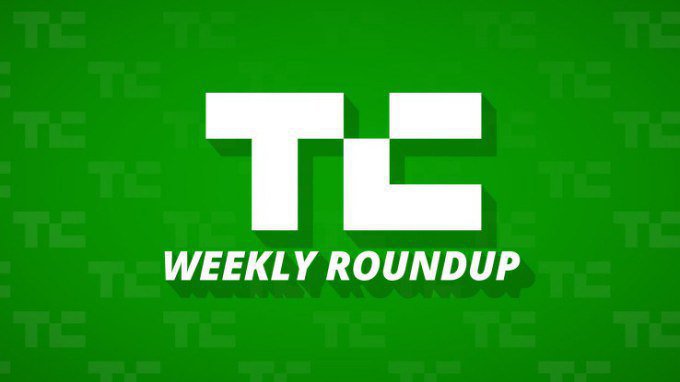As we return from Disrupt London, we give you the stories you won’t want to miss from the past week (10/18-10/24).
- Josh Constine wrote a long form piece called “Inside The Spotify – Echo Nest Skunkworks” about the future of Spotify and what it will take for them to win the music streaming race.
2. Columnist Jon Evans explored the concept of Developaralysis: the crippling sense that the software industry is evolving so fast that no one person can possibly keep up. There are so many options for developers now, and there are just too many programming languages and devices. How can one hope to be innovative when the industry is growing so quickly?
3. On Monday, Apple released iOS 8.1 along with the ability use Apple Pay. We decided to give it a try at two nearby businesses that already accept Apple’s NFC-powered mobile payments: Walgreens and McDonald’s.
- We were right about Apple shutting down Beats Music and rolling it into iTunes. While Apple does not need to make money on music, this could spark interesting changes for iTunes in terms of streaming services. Judging by how terrible iTunes 12 is, we’re looking forward to the revamp next year.
-
Google announced two new pieces of shiny goodness, the Nexus 6 phone and the Nexus 9 tablet. We were finally able to get our hands on these devices and review them for you. The consensus? The Nexus 6 – which runs with Android 5.0 (Lollipop) – is undeniably more polished than its predecessors and has a similar feel to the iPhone 6 Plus. The Nexus 9 has a new multitasking view and a guest mode, and it feels like a truly top notch tablet.
-
During an interview at the Tsinghua University business school in China, Mark Zuckerberg revealed that he is multilingual as he started responding to the questions in Mandarin. While Chinese entrepreneurs are expected to be fluent in English if they try to break into Western markets, it’s certainly rarer to see American executives returning the favor. This gives Zuckerberg some extra points in my book.
-
After a larger-than-expected third quarter loss, Amazon tanked 10%. The company lost $0.95 per share on revenue of $20.58 billion. And, not that this came as much of a surprise, the Amazon Fire Phone totally flopped. They ordered too much inventory, and made promises to their suppliers that they just couldn’t keep. On the other hand, Microsoft had a strong quarter. After gaining more than 1 percent in regular trading, the company reported its fiscal first quarter 2015 earnings: Revenue totaled $23.20 billion in the period, leading to profits of $0.54 per share.
-
Google rolled out a new email service from the Gmail team, but it is not supposed to be like Gmail. It’s an app called Inbox, and the goal is to present you with your information in a way that’s aimed at making content contextually relevant, instead of just there as you receive messages. So far it operates with an invite only system, but you don’t need to search eBay for codes to get invited. All you need is a friend who is already using it. Here’s a first look at how Inbox works.
-
It’s rare to see a company raise so much money and remain secretive, but that’s exactly what Magic Leap has done. This week Magic Leap closed $542 million Series B, featuring investors led by Google, Inc., and including KPCB, Andreessen Horowitz, Obvious Ventures, Qualcomm, and Legendary Entertainment. What is Magic Leap? We’re not entirely sure, but it sounds like a wearable that can project artificial, but extremely realistic images onto a user’s retina to create an immersive effect. We’ll have to wait until an official reveal to learn more.
10. Facebook launched a new pseudonymous app called “Rooms” that lets you create forums about any topic. Josh Constine did a Q&A with Facebook’s Josh Miller about how this app is reflective of the early Internet.
11. We threw Disrupt Europe in London, and it was a huge success. The finalists for the Startup Battlefield were Disease Diagnostic Group, Photo Math, Oscult, and Crate, but Crate ended up taking home the grand prize. Crate is an easy-to-use service that lets you set up big data backend servers. Highlights from the Disrupt fireside chats included a conversation with Rasberry Pi founder Eben Upton about the incoming “Pi Pad” touch panel, an interview with our boss, Tim Armstrong, and a conversation with Fab co-founder Jason Goldberg about how the company was at one point burning through $14 million a month. You should also check out this panel with the Wonga Investors (hint: they still aren’t saying much). You can catch up on all of our panelist and fireside chat discussions here. Prior to the main Disrupt event, we held a hackathon. The team behind Infected Flight built a cross-platform web app to model how diseases spread, earning themselves first place.
That’s all for this week.
